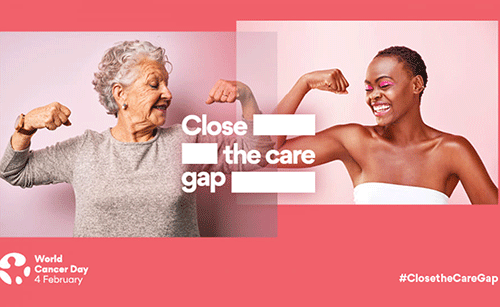Getting screened for cervical cancer is a lifesaving step for women.
United States President’s Emergency Plan For AIDS Relief
(PEPFAR) country coordinator Cheryl Amoroso stated that the purpose of cervical cancer screening is to identify precancerous cells; cells that are not yet cancerous but if left untreated, may become cancerous.
“Prevention is always better than cure and, in this instance, it is no different. It is quicker, simpler, and safer for your health to identify and remove precancerous cells than to treat cancerous ones,” she referenced.
Amoroso added that through a venture with the health ministry, they are strengthening access to cervical cancer screening and treatment in Namibia.
“Centres for Disease Control and Prevention (CDCs) Namibia have also worked with the ministry to make it possible for treatment of early precancerous cells to occur at the facility where the woman is screened, and to increase the referral points across the country where a doctor will remove the dangerous cells if they have become larger. This has made it quicker, simpler and easier to prevent invasive cervical cancer because together we have made it possible for women to access screening and treatment services.”
She said getting screened once is not enough.
“Starting from age 20 for HIV-positive women and repeated every three years, and age 25 for HIV-negative women and repeated every five years, we need to be regularly screened to ensure any issue is caught early while still easily treatable,” noted Amoroso.
She added that she has met several women in their late 20s and early 30s with weeks left to live, dying from cervical cancer that could have been prevented with screening and early treatment.
Amoroso urged men to get circumcised as this is an effective way for men to reduce the risk of HIV and reduce the risk of cervical cancer for their partner.
Namibia’s health deputy ministry Ester Utjiua Muinjangue said globally, cervical cancer is the fourth leading cause of death amongst women worldwide, and in Namibia, it is the second leading cause of death amongst women.
“This condition is considered an AIDS-defining illness and can be completely prevented through human papillomavirus (HPV) vaccination, early screening and treatment,” she stated.
“HIV remains a public health threat and a multi-disciplinary approach response will reduce the morbidity and mortality associated with the virus itself. In 2018, the Cervical Cancer prevention programme was introduced in the country to cater to women living with HIV aged between 20 to 49 and HIV-negative women aged between 25 to 49.”
Muinjangue said that to date, 91 548 women regardless of HIV status were screened for cervical cancer from 2018 to 2022.
She added that in addition to screening, diagnosis, and treatment of women with cervical cancer, the ministry is working to introduce vaccination for human papillomavirus (HPV), which is the most common cause of cervical cancer.
Meanwhile, the health ministry recently concluded the cervical cancer awareness month, which has been ongoing for the month of January, and launched the screening campaign in Katima Mulilo.
The ministry joined the rest of the world in commemorating Cervical Cancer Awareness Month as well as World Cancer Day which takes place on 4 February under the theme ‘Closing the Care Gap’.
Muinjangue said public information campaigns play an important role in educating, informing and affecting the desired change among citizens, subsequently resulting in a healthy population growth.
She reiterated the aim of the ministry which is to provide integrated, affordable, accessible, and quality health and social services that are responsive to the needs of the Namibian population.
Muinjangue further said that the commemoration of World Cervical Cancer Awareness Month aims to create awareness about the importance of and availability of cervical cancer screening and treatment services for women who are at risk.
The ministry will conduct cervical cancer screening sessions at all public health facilities around the country from 23 January to 03 February 2023.
Muinjangue said in efforts to eliminate cervical cancer, the Namibian government has approved and committed to procuring the HPV vaccines, and all girls from the age of 15 will be inoculated as a preventative measure to curb the prevalence of cervical cancer in Namibia. – psiririka@nepc.com.na


